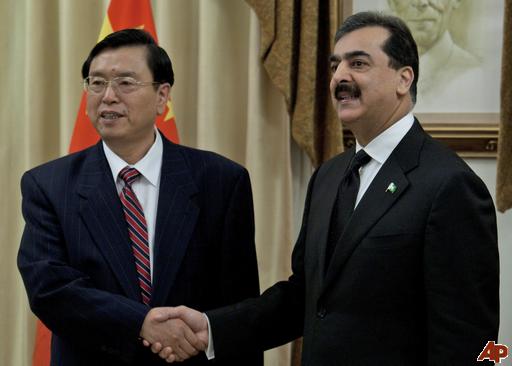Ravivir
VIP

WASHINGTON: The Obama administration has decided to object to a Sino-Pak civilian nuclear deal for establishing two atomic reactors in Pakistan, as it comes before the Nuclear Suppliers Group next week.
Experts have said that the deal appears to be violating international guidelines forbidding nuclear exports to countries that have not signed the nuclear Non-Proliferation Treaty or do not have international safeguards on reactors.
The Sino-Pak nuclear deal is expected to come up before the 46-nation Nuclear Suppliers Group (NSG) meeting next week in New Zealand, the Washington Post reported on Tuesday.
State department spokesman Gordon DuGuid said the US government "has reiterated to the Chinese government that the United States expects Beijing to cooperate with Pakistan in ways consistent with Chinese nonproliferation obligations".
In a recent article, a prominent American nuclear expert believes this would breach international protocol about the trade of nuclear equipment and material.
"The move would breach international protocol about the trade of nuclear equipment and material," Mark Hibbs said in the latest issue of the prestigious Foreign Policy magazine.
The China National Nuclear Corporation is financing for two new reactors at Chashma in Pakistan's Punjab province.
The Post said China has suggested the sale is grandfathered from the time before it joined the NSG in 2004, because it was completing work on two earlier reactors for Pakistan at the time.
However, US officials said any such proposal would require a consensus approval by the NSG.
"Additional nuclear cooperation with Pakistan beyond those specific projects that were grandfathered in 2004 would require consensus approval" by the NSG, a US official was quoted as saying, and added that this the US believes "is extremely unlikely".
Interestingly, China had initially objected to the Indo-US civil nuclear deal, saying it would undermine the global non-proliferation regime. Beijing finally came around to support the agreement in the NSG, apparently under US pressure.
The Indo-US nuclear agreement was signed in 2009 after a long-drawn process, including a crucial NSG waiver, and passage through both the Indian and American legislatures.
